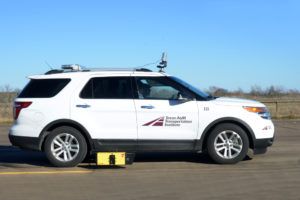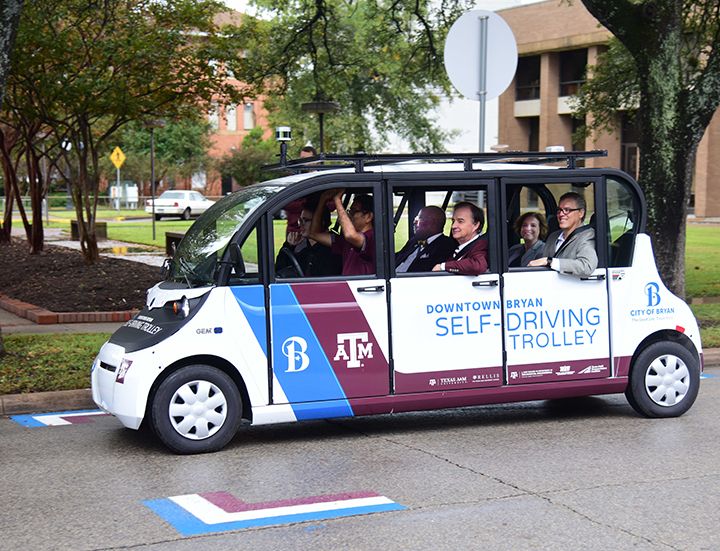The Robert Wood Johnson Foundation (RWJF) has awarded the Texas A&M Transportation Institute (TTI) a grant to evaluate safety and health concerns related to implementing connected and automated vehicle (CAV) technologies.
The RWJF is the largest philanthropic organization in the USA dedicated solely to health and well-being. The Foundation notes that CAVs hold the promise to revolutionize the country’s transportation system through improved mobility and safety while also reducing congestion and crash-related deaths and injuries. However, the potential health benefits and consequences of adopting CAVs has yet to be studied in depth. The RWJF grant of US$250,000 to TTI is part of a larger US$2.4m initiative exploring the interrelationships among technology, infrastructure and health. The project also includes graduate student funding from TTI’s ‘Safety through Disruption’ University Transportation Center.
 The project will provide planners and policymakers with the resources they need to anticipate adoption patterns of CAVs. For example, they could use TTI’s research results to proactively mitigate transportation and health issues, such as crashes or poor air quality in low-income communities with slower CAV adoption rates. TTI researchers will conduct a literature review, collect and analyze data, develop a data visualization tool, and ultimately provide recommendations regarding the impact of new technologies on public health. They will also collaborate with the City of Dallas and the North Central Texas Council of Governments to implement the project’s deliverables, including the data visualization tool and recommendations, toward city planning and policy in the Dallas-Fort Worth metropolitan area.
The project will provide planners and policymakers with the resources they need to anticipate adoption patterns of CAVs. For example, they could use TTI’s research results to proactively mitigate transportation and health issues, such as crashes or poor air quality in low-income communities with slower CAV adoption rates. TTI researchers will conduct a literature review, collect and analyze data, develop a data visualization tool, and ultimately provide recommendations regarding the impact of new technologies on public health. They will also collaborate with the City of Dallas and the North Central Texas Council of Governments to implement the project’s deliverables, including the data visualization tool and recommendations, toward city planning and policy in the Dallas-Fort Worth metropolitan area.
“There is great uncertainty associated with the health and equity implications of CAVs,” explained TTI associate transportation researcher and principal investigator, Bahar Dadashova. “We’ve put together an interdisciplinary team to quantify the health impacts of CAVs along two key pathways: highway safety and traffic-related air pollution.”
TTI associate research scientist, Haneen Khreis, added, “Health is our most important asset, and so we must better understand and effectively address environmental and social determinants of health. We need more research on how introducing CAVs will affect public health and health equity.”
Paul Tarini, RWJF’s senior program officer, said, “We are living in a time of unprecedented and increasingly rapid technological development, where technologies are designed, developed and implemented without full consideration for their influence on human life, health and equity. This project at TTI will help cities develop a better understanding of how CAVs will impact the health of their residents.”





